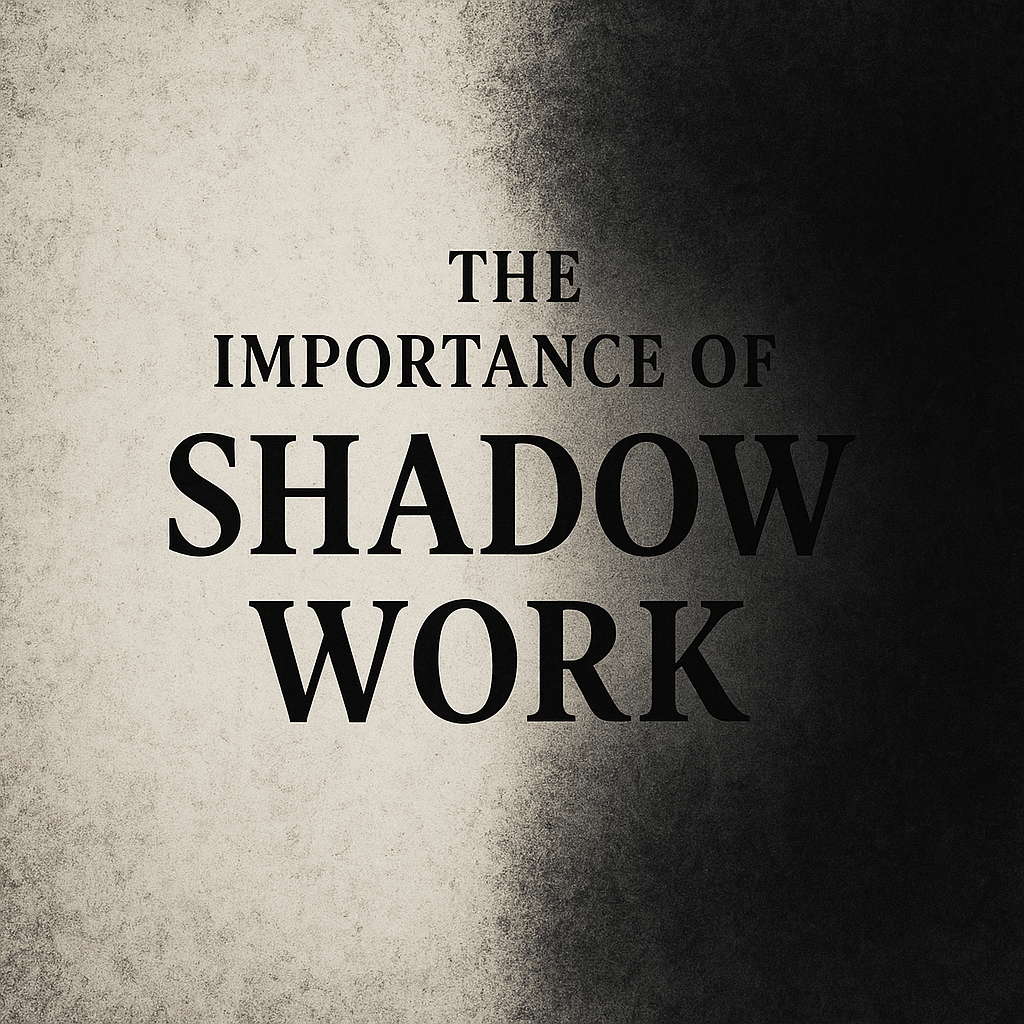
Is Shadow Work Dangerous?
🌑🌑🌑🌑🌑🌑🌑
Shadow work has become such a buzzword in the world of self-help, spirituality, and psychology, and with good reason, as it offers many benefits. However, with its growing popularity, many are asking: Is shadow work inherently dangerous?
As many things in life, the answer isn’t black and white. Shadow work can be profoundly healing, but it can also be emotionally intense and destabilizing if approached without awareness or support. Let’s break down what makes shadow work powerful—and when it can be risky.
What is Shadow Work?
To know what shadow work is and what entails, read this article before continuing:
So… Is Shadow Work Dangerous?
Yes, It Can Be—If Done Without Preparation
Shadow work involves facing uncomfortable truths. This means:
-
Re-experiencing painful memories or trauma
-
Uncovering limiting beliefs or patterns we’d rather avoid
-
A temporary loss of emotional stability as the subconscious becomes conscious
For some, this emotional upheaval can lead to depression, anxiety, or emotional overwhelm, especially when shadow work is attempted without guidance, safety tools, or readiness.
No, It’s Not Dangerous—If Approached with Care
When done gently and intentionally, shadow work is not only safe but transformative. It allows you to:
-
Heal emotional wounds
-
Break destructive patterns
-
Reclaim personal power
-
Deepen relationships and self-understanding
With proper boundaries and support, it can be a cornerstone of personal growth and spiritual evolution.
Warning Signs You Might Be Going Too Deep
-
You feel emotionally raw or numb after every session
-
You’re reliving traumatic events without tools to ground yourself
-
You’re withdrawing from daily life or relationships
-
You’re feeling worse over time, not better
These signs suggest it’s time to pause, seek support, or shift to a gentler healing approach.
How to Make Shadow Work Safer
-
Start Small: Use journaling prompts or reflection questions to dip your toes in.
-
Set Boundaries: Don’t try to “fix everything” at once.
-
Work with a Professional: Therapists, spiritual coaches, or follow a structured course or class.
-
Practice Grounding: Breathwork, nature walks, or body scans help stabilize your nervous system.
-
Take Breaks: Integration is just as important as discovery.
Shadow Work Is Not a Trend—It’s a Sacred Process
Today, shadow work is everywhere—on TikTok, in journals, in Instagram reels. But true shadow work isn’t just a trendy self-care ritual. It’s deep, sacred psychological excavation that requires respect.
When treated like a spiritual trend, it can lead people into emotional territory they’re not ready for. When treated as a lifelong process of integration and healing, it becomes a liberating, empowering path.
Shadow work isn’t inherently dangerous—but like any inner work, it requires care, intention, and self-awareness.
If you’re ready to begin, start slowly. Be compassionate with yourself. And if things feel too heavy, know that there’s no shame in asking for help.
✨ Want to dive deeper into shadow work and how it can help your spiritual growth?
Check out: The Importance of Shadow Work in Personal Development




Recent Comments